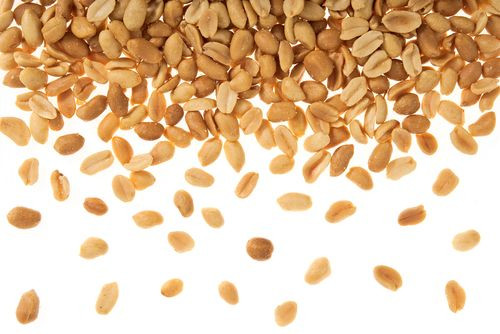An Allergy Drug Approved Pre-Covid Is Re-emerging

Harmless to some but anything but to others, a peanut allergy is a big deal. Around 2% of children have allergies to peanuts, which is one of eight recognized major food allergens.
In January 2020, pre-Covid, the FDA approved a drug to treat peanut allergies in children. Called Palforzia, it isn’t a traditional drug, but instead a "peanut allergen powder" made of peanut powder and peanut protein. Palforzia conditions the immune system to tolerate peanuts in very very small doses over three phases of administration. But, with that comes the risk of allergic reactions during treatment. Of 709 treated trial participants, severe reactions were reported in 9.4% participants in the first two phases, as opposed to nearly 4% of the 292 who were not treated. The children in the placebo group were not exposed to peanut.
Palforzia is approved for children 4 to 17 years old. The treatment is broken down into three phases, the “initial dose escalation,” “up-dosing,” and “maintenance dosing.” The first two phases take about a year to complete and must be done under the supervision of a medical professional, as allergic reactions, some serious, are possible side effects. The last phase can be done at home.
The pandemic delayed the therapy's rollout. When non-essential services shut down patients could not make it to their allergists for treatment. Now, allergists have started enrolling patients again. According to the Palforzia website, this therapy is only available through a risk evaluation and mitigation strategy program because this therapy can cause severe allergic reactions. Physicians need to complete the program with the therapy's manufacturer, Aimmune before they can prescribe it to patients. So far, there are about 1,000 certified allergists.
A little history
Treatments of this kind are called oral immunotherapy. It isn’t a new idea. According to The Atlantic, in the 1990s there was an attempt to treat people with peanut allergies with a shot of peanut extract. During these trials, a patient died.
Palforzia was proven to be safe in its clinical trials, hence earning it FDA approval. At the end of Palforzia’s clinical trial two-thirds of the participants who had gotten the treatment were able to eat two whole peanuts.
The risks
Controlling peanut allergies is about more than eating PB & Js without fear of hospitalization. Undeclared peanuts -- when peanuts are in a product but peanuts aren't listed on the label --show up in all types of products. In 2020 the FDA recalled 24 products due to possible peanut contamination or undeclared peanut contamination. They showed up in granola bars, ice cream, yogurt covered pretzels and raisins, and even probiotics.
The FDA estimates that of the one million children in this country who have a peanut allergy, maybe 20% will outgrow it. Food-allergy-related deaths are relatively rare.
This peanut allergen powder should not be used to treat the life-threatening condition called anaphylaxis, which is the most severe of allergic reactions. In October, the World Allergy Organization defined anaphylaxis as a "serious systemic hypersensitivity reaction that is usually rapid in onset and may cause death. Severe anaphylaxis is characterized by potentially life-threatening compromise in airway, breathing and/or the circulation, and may occur without typical skin features or circulatory shock being present.”
During Palforzia treatment patients still need to avoid peanuts.
The competition
Aimmune, which makes Palforzia, has some competition. The French biopharmaceutical company DVB Technologies made Viaskin, a patch for people with peanut allergies. Last year Viaskin was denied approval by the FDA, citing issues with the adhesive patch itself. The company is still working on Viaskin but laid off nearly 200 people early this year. According to DVB, the cost savings from this dramatic reduction in staff will keep the company open into 2022.
Even with Palforzia getting FDA approval, respite is not yet here for the allergic. The first year of Palforzia treatments must take place with supervision by a health care provider because anaphylaxis or an anaphylactic reaction is a possible side effects of Palforzia treatment, which occur usually in these phases. As Covid-19 forced the shutdown of non-essential businesses and swamped the medical system, patients could not get to allergy clinics, so Palforzia’s rollout was delayed.
It wasn’t all bad news. Once doctors' offices started reopening, Aimmune started enrolling; 1,000 physicians had signed up by July. “The Company is seeing some clinics beginning to fully operationalize Palforzia at scale with double-digit numbers of new patient starts,” it said in a statement.
In late December, the European Commission approved the therapy.
The future of allergy treatment
In October Aimmune was acquired by Nestlé -- Nestlé Health Science, that is. But yes, its parent makes the yellow-bagged chocolate morsels.
According to documents Aimmune submitted to the Securities and Exchange Commission, Palforzia will cost $890 a month, although for some families there will be assistance, bringing the cost down to $20.
The first two stages of treatment with Palforzia takes nearly a year, so, in the first half of 2021, Palforzia patients should be able to move to the maintenance phase. In the future, Aimmune plans to expand its treatment to toddlers (the under 4 contingent) as well as adults and to branch out into other allergies.
Published by Medicaldaily.com



























